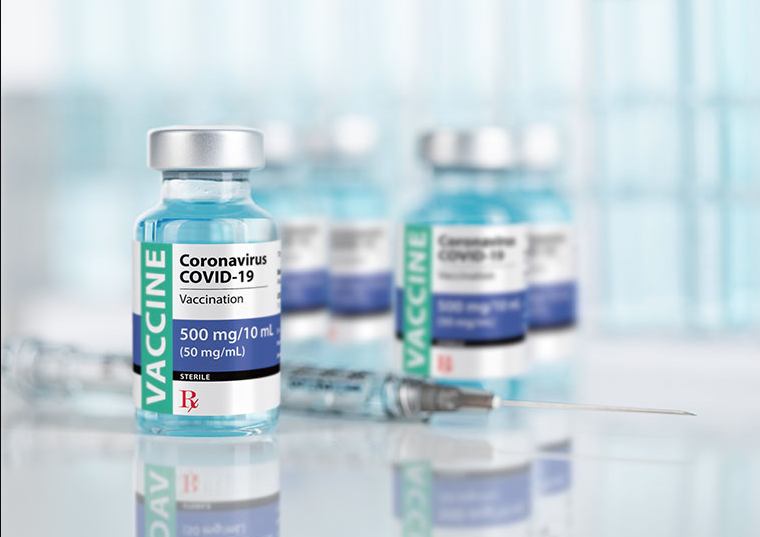- More sweeping changes are being made to the Centers for Disease Control and Prevention (CDC) COVID-19 vaccination immunization recommendations, Health Secretary Robert F. Kennedy Jr. has revealed.
- With these updates the CDC no longer recommends vaccinating healthy children or pregnant women with COVID-19.
- All other groups of people in whose case the vaccines are recommended at this time include people who are at a high risk of developing severe COVID-19 infection following exposure to the virus that causes the illness, SARS-CoV-2.
- After the announcement of a new strain of SARS-CoV-2 that is more contagious in the US, these changes have raised questions.

The Centers for Disease Control and Prevention (CDC) will no longer prescribe the COVID-19 vaccination to healthy children or pregnant women. In U.S. Health Secretary Robert F. Kennedy Jr. declared on social media on May 27, 2025,
Shortly after the announcement, officials from the Food and Drug Administration (FDA) made another statement in The New England Journal of Medicine (NEJM) suggesting that future COVID-19 vaccination campaigns should target older adults and those who are at high risk of developing severe illness if they contract the virus that causes COVID-19, SARS-CoV-2.
Given the emergence of NB.1.8.1, a new, more transmissible strain of SARS-CoV-2, in the United States, these modifications to the recommended COVID-19 vaccination schedule have raised concerns and raised doubts.
To address the most pressing questions, Medical News Update met with Monica Gandhi, MD, MPH, an infectious disease expert at the University of California, San Francisco, and Daniel Ganjian, MD, FAAP, a board-certified pediatrician at Providence Saint John’s Health Center in Santa Monica, California.
What effects do the new standards have on expectant mothers?
Having been constrained by lack of access to the COVID-19 vaccine may increase a woman’s likelihood of getting pregnant, making motherhood more likely to pose a risk.
“Patients will lose one of the most important COVID-19 vaccination that reduces their risk of severe COVID-19 infection and ICU [intensive care unit] admission, preterm birth and perinatal death if they no longer get COVID-19 immunizations, ” Ganjian told MNU.
Because of these dangers, “(In the past) the Centers for Disease Control and Prevention (Trusted Source), the American College of Obstetricians and Gynecologists and the Society for Maternal-Fetal Medicine have all advocated giving COVID-19 vaccination in pregnancy, ” he said.
COVID vaccine recommendations in kids… what do they really mean?
Although generally healthy children are less likely to develop severe COVID-19, infection with the coronavirus that causes it could have unexpected health effects on them.
For instance it may also cause chronic problems that might create additional problems.
“Undermining the recommendations for COVID-19 vaccination will increase the risk of severe COVID-19 infection, hospitalization and adverse health events such as multisystem inflammatory syndrome in children(Trusted Source) in individuals with underlying medical disorders”, Ganjian said in a report.
“All children 6 months of age [and older], according to the American Academy of Pediatrics, should be given the COVID-19 vaccine because of its strong ability to prevent serious consequences, ” he added.
While noting “this will be determined by regulatory and public health policy decisions, ” he did say that “children with immunocompromising conditions or other high risk comorbidities may have the option to receive vaccinations in certain clinical indications despite the recent changes to the recommendation for vaccination”.
“Honey children who had immunity in the past — either from vaccination or previous infection — need not be given COVID-19 vaccines, ” Gandhi said, adding those who have not had an opportunity to develop that immunity may now suffer health issues.
So she told us, “I would like to see children who have not been vaccinated in the past get the COVID-19 vaccine.
What are the public health implications of the revised vaccine recommendations?
“Having broad recommendations withdrawn would most likely represent a change in risk assessment from the public health perspective, possibly in response to changes in epidemiology, variant severity or vaccine efficacy, but this would also mean an increase in morbidity (susceptibility to disease), ” Ganjian said.
Parents should not take this action, as the children who have already won some protection should not need to be vaccinated again, Gandhi said, but a more discriminatory one could opt for this attitude, to recommend booster vaccinations for pregnant women.
Gandhi, however, was also concerned that the FDA recently recommended that vaccines against COVID-19 be tested with placebo, after reading the NEJM opinion in May 2025, because people who received a placebo instead of a vaccine might now not only get unintentional exposure to serious illness, but also get duped by the deceptive marketing system.
Because there was no existing COVID-19 vaccine, the first COVID-19 vaccination trials (such as those comparing Moderna or Pfizer’s vaccines) incorporated a placebo-controlled design — so it was morally appropriate to use a placebo as a comparison, she said.
However, Gandhi said that because we now have COVID-19 vaccines, it would be unethical to compare a new COVID-19 vaccine to a placebo in a vulnerable person (such as an elderly person) when the control might well be an earlier formulation of the COVID-19 vaccine.
Like many other people living at around 90 years of age, my father needs to receive an annual booster COVID-19 vaccine and she openly told me, “I would never allow him to take part in a vaccine trial if it was either a new virus vaccine, or a placebo because in that arm he would be not protected by the new virus vaccine.



One thought on “Modifications to COVID-19 vaccination recommendations: answers to four important questions”